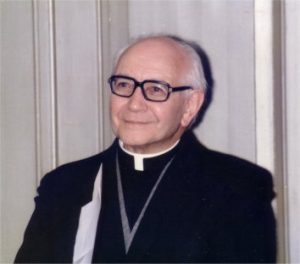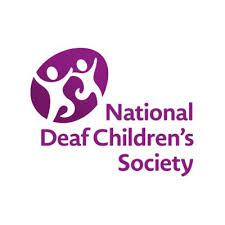Father van Uden 1912 – 2008 – a personal appreciation

It is with sadness that many teachers of deaf children of my generation will hear of the death of Father Van Uden at the age of 96, in September. Van Uden was a prolific author (most notably of “A World of Language for Deaf Children”), an influential thinker and an inspirational speaker, who travelled the world to share the extraordinary practice that developed with profoundly deaf children and young people in Sint Michielsgestel in the Netherlands in the 1950s and 1960s.
The special school context in which Van Uden’s ‘Maternal Reflective’ approach evolved looks extraordinary to modern eyes – more than 550 profoundly deaf children being educated in one place, with many young people living away from home. It reflected standard practice at the time, when the integration or inclusion of deaf children into mainstream schools was unusual, and before technology developed to deliver the quality of acoustic information that is available today. However, this environment created conditions in which an unusual depth of understanding of deaf children’s learning could develop, underpinned by a range of associated research activity. The simple numbers of children involved also allowed a flexible response to individual learning need that it is difficult to replicate in many other settings.
Visiting Sint Michielsgestel in the 1980s, at which time the school threw open its doors to many hundreds of people three times a year, was an opportunity to experience high standards in action – high expectations for what children and young people can achieve, high levels of professional expertise and highly motivated, active pupils. Many teachers of the deaf from the UK participated in these weeks and were challenged by meeting profoundly deaf young people speaking intelligibly in English, their second language, or responding with enthusiasm to the stimulus of music and movement. Although the school employed many skilled members of staff at that time, the range of provision available, the differentiation of approach, and the overall coherence of practice owed much to Van Uden’s original thinking. His contribution was to base classroom practice firmly on conversation, as the natural context for first language acquisition, but to integrate visual support using written language, to enable deaf children who did not have access to acoustic information to make language for themselves, on the model of what young hearing children do.
Father van Uden was sometimes a contentious figure, because his name is so closely associated with oral practice, the development of functional literacy and intelligible speech. However, the provision that developed over the years at Sint Michielsgestel was highly differentiated. An ‘oral’ approach was used with some children (whether or not they were academically inclined); one-handed finger spelling combined with the written word or sign language with others.
Van Uden was active for many years after he officially ‘retired’ and it was not unusual to bump into him in the corridors of the school or to catch sight of his distinctive black suit in the distance. However, I was fortunate enough to meet him for the first time as a young teacher and to spend three months attending his lectures in Holland in the early 1980s, at which time he was simply an inspiration – a learned and generous mentor, who was uncompromising in his ambitions for deaf children and in his expectations of himself and other people.
Elizabeth Andrews
BATOD Magazine January 2009, page 39



